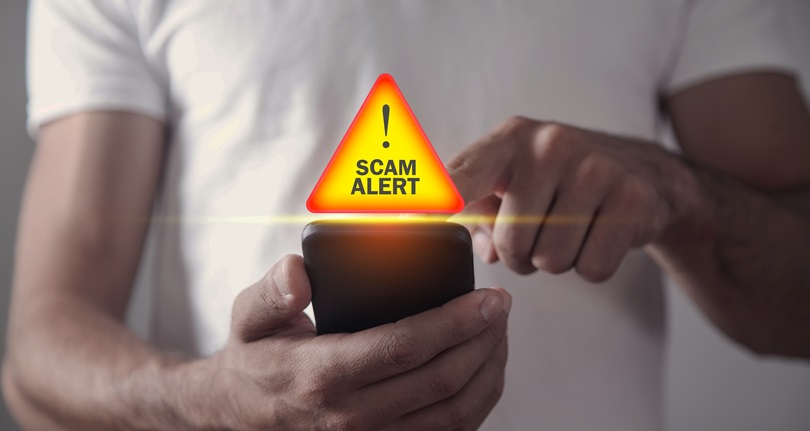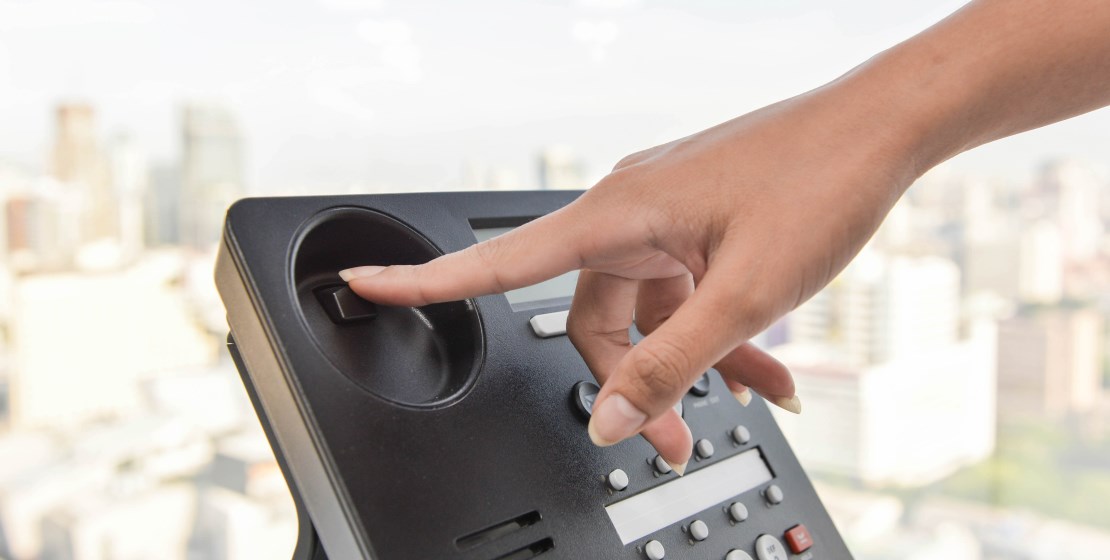
Jun 8, 2021 | Safety and Security
What does a utility scam look like? We think these emojis will help you remember!
If you know what to watch for, you’ll never have to look worried, like this:

# # # # #
“Pay now or we’ll cut you off.”
Scammers say this; we don’t. If you are at any risk of losing service, we’ll give you plenty of notice. You won’t be surprised by a phone call threatening imminent shutoff.

# # # # #
“Go get a prepaid card.”
Scammers often insist that you have to pay with prepaid cards or digital payment apps, because it’s convenient for them. We don’t pressure you to use these types of payments.

# # # # #
“This is a fee to connect your meter.”
Scammers sometimes make this claim. Any meter-related costs you have to pay are included as part of your bill. There’s no extra fee to get a meter fixed, replaced or connected.

# # # # #
“But I said–” *click*
Don’t be scared, pressured or intimidated by scam phone calls. Just hang up. Call your local police if you feel threatened.

# # # # #
Want to make sure your account is not overdue?
For peace of mind, you may want to verify your account is in good standing after receiving a scam call. To do that, log on at pplelectric.com, to check your account status.


Jan 21, 2021 | Safety and Security
On one front, this year is picking up right where 2020 left off: Scammers are still on the prowl.
We – as well as other utilities across the country – are seeing an increase in fraud and deceptive marketing tactics so far in 2021.
Here’s the good news: We’re all getting smarter when it comes to spotting a scam, and we want you to know the warning signs so you can keep your peace of mind – and your pocketbook – intact.
Have you ever received a call allegedly from PPL promising you a better rate for your electricity supply? Scammers are savvy. They can make their calls display PPL’s phone number on your caller I.D. But surely, it wasn’t us.
Maybe you received a threatening text message with a link to pay your electric bill to avoid a shut-off. The text may have offered a digital payment option. Again, that wasn’t us!
Or, worst-case scenario, someone who claimed they were from PPL showed up on your doorstep, in the middle of a pandemic, and offered you a fantastic deal on your electricity supply. Like your parents always said, if someone offers you a deal that’s too good to be true, it almost always is. And that individual certainly was NOT from PPL.
How do we know these weren’t PPL employees making these claims? Because we don’t do business that way. We never market on behalf of electricity suppliers, and we never make threats. If you’re behind on your bill, we’ll discuss options with you and develop a payment agreement to keep your lights on. We’ll never demand immediate cash to avoid shutoff.
If you’re concerned that you might be the target of a scam, be sure to log in to your secure online PPL account to verify what the caller is telling you. You can easily check your rate, verify any amounts due and make payments through our secure systems. If you need help setting up your account, call us at 1-800-342-5775.
Want more tips on how to spot fraud and deceptive marketing? Check out pplelectric.com/scams.

Feb 8, 2019 | Safety and Security
Scammers never sleep. Their targets are many, including electric utility customers.
Utilities across the U.S. are in constant battle with these thieves who try to fleece their customers. Don’t let it happen to you.
A common theme of scammers is threatening to disconnect power immediately if payment is not made, usually via a prepaid debit card. If you’re a PPL Electric Utilities customer, we want you to know that’s not how we do business.
We’ll give plenty of notice when there’s a possible risk of shutoff, and we don’t pressure anyone to use specific payment methods. We try to work with all customers to help them maintain uninterrupted service.
One recent scam report involved our current meter replacement project. We’re replacing our meters to better serve you and to comply with state energy-efficiency law regulations. We don’t demand immediate payment for the new meters and threaten to shut off your power. Meter project costs are being recovered over time through a charge on customer bills.
Remember, you can always check your account status by logging on at pplelectric.com or calling us at 1-800-DIAL-PPL. If you get a suspicious or threatening call that claims to come from another company – like a utility or a bank – do the same thing: Hang up and contact the company directly using a trusted method, like the phone number on your monthly statement, or a website you know belongs to that company.
Working together, we can stop these scammers from causing financial loss and heartache.

Oct 26, 2017 | Safety and Security
At Halloween, we love to see princesses, vampires and superheroes ring the bell. But if fake utility workers come to your house, we want you to shut the door.
Utility impostors are an evergreen-type scam that shows up now and again. Here’s how it works:
- Someone will come to the door claiming to represent PPL or a PPL contractor. (They may also pose as a utility worker from the cable, water, or phone company.)
- They’ll ask the customer to come outside to look at work that needs to be done.
- Another scammer will enter the house and take money or valuables while the customer is outside and distracted in conversation.
It’s fairly rare that we will ask customers to come look at work that needs to be done. And the employees and contractors who might do this – such as meter technicians – often work alone, not in pairs. But it’s possible that a legitimate PPL representative might invite a customer outside to look at work or equipment.
How can you slam the door on scammers? Here are a few suggestions.
- If you choose to come outside with any person – PPL or otherwise – it’s a good idea to close and lock all doors so no one can enter your home while you’re out. A legitimate PPL employee or contractor will wait while you do this. (Don’t forget to bring a key with you, of course.)
- Any PPL employee or contractor will provide ID on request.
- You can also call us at 1-800-DIAL-PPL (342-5775) to confirm that we have employees or contractors working in your area. (Have the person at your door tell you what company they represent and give you a clear description of the work they are there to do. This will help us verify.)
- If you contact PPL, and you are still not completely sure of the identity of the people at your door, dial 911 to have law enforcement respond for assistance.
This scam sometimes targets elderly customers or those who live alone. If you have a friend or family member who fits that description, please share this information with them.
Together, we’ll make “utility impostor” a costume that doesn’t pay off.

Jun 16, 2017 | Safety and Security
A friend of ours had an embarrassing experience with would-be scammers not long ago.
Her parents, who were visiting her home, answered a phone call in which a scammer claiming to be PPL threatened to cut off her power immediately if she didn’t pay. Her parents became concerned and called her at work, asking why she hadn’t told them she was in financial trouble.
She wasn’t. In fact, she’d paid her bill online, and her account was in good standing. But the phone call caused her — and her parents — more than a little worry.
At PPL Electric Utilities, we’re trying to stop scammers who steal our name. We don’t want them to steal from you.
Door-to-door solicitors claim to represent us. (They don’t.) High-pressure phone callers say PPL will cut off power in an hour if you don’t pay. (We won’t.) We’ve seen reports of phishing emails that pretend to come from PPL, as well.
We’d like all these people to keep our name out of their mouths, and our security team works with police to pursue them. But, until they’re caught, the best thing we can do is share information on how to spot scammers. This advice can help you spot swindlers who might pretend to come from other companies you trust, too.
So share these signs of scams with anyone you know who can use them. We don’t want anyone to be taken advantage of.
Door-to-door energy marketing
In Pennsylvania, you have the right to buy your energy supply from a competitive supplier, rather than have PPL Electric Utilities supply it. You may be able to save money by paying a lower rate than the one we charge. (No matter who you buy your energy from, it will be delivered safely and reliably over our network.)
You should know, though, that we don’t endorse any one supplier over another. And those door-to-door solicitors who promote energy suppliers do not represent PPL. In fact, they’re required to specifically tell you that they’re not working for us.
Our advice? Don’t be afraid to buy your energy supply from another company – but the best place to start is our shopping website, pplelectric.com/shopping. You can also go to the state Public Utility Commission’s site at PAPowerSwitch.com to compare our current price, called the “price to compare,” to those of other suppliers.
If you want to listen to door-to-door salesmen and see what they have to offer, you can. But we recommend that you not sign anything before checking PAPowerSwitch.com, where you may find a better offer. And don’t provide your PPL account number to anyone.
Phone scams
Phone callers who impersonate PPL give themselves away by doing two things we don’t.
They claim they’ll cut off power immediately if they don’t get paid. And, they pressure you to pay them by buying prepaid cards. (In real life, we’ll give plenty of notice when there’s a possible risk of shutoff, and we don’t pressure anyone to use specific payment methods.)
You can always check your account status by logging on at pplelectric.com or calling us at 1-800-DIAL-PPL. If you get a suspicious or threatening call that claims to come from another company – like a utility or a bank – do the same thing: Hang up and contact the company directly using a trusted method, like the phone number on your monthly statement, or a website you know belongs to that company.
“Phishing” emails
A “phishing” email is a message that tries to get you to share personal information, such as account numbers. Some phishing messages can look a lot like the emails sent by real companies you know and trust.
Here are ways to keep yourself off the hook: First, hover your mouse over any link in the message. Read the URL that pops up, and see where the link really goes. Does it go to a site you trust, like pplelectric.com? Or does it go someplace you’ve never seen before?
Also, if the message says there’s an urgent problem with your account, don’t click. Instead, contact the company directly through a trustworthy channel to check your account status. They’ll let you know if you really have anything to worry about.











